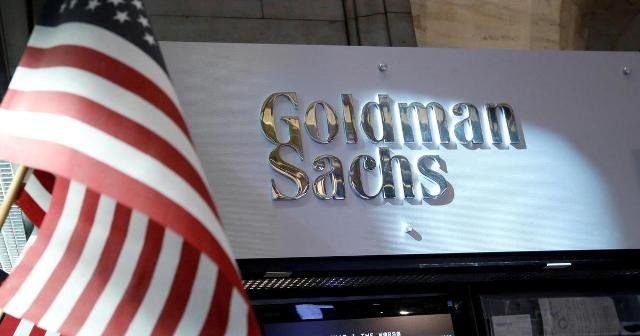Analysts at Goldman Sachs are maintaining a recommendation to buy sterling, projecting that the pound could rise to $1.30 in the event of a Brexit deal before the October 31 deadline.
In a note published over the weekend, Co-Head of Global Foreign Exchange and Emerging Market Strategy Zach Pandl told investors that despite Friday’s substantial rally upon hopes of a Brexit deal, sterling likely has “further to run,” and retained the $1.30 price target initially set on October 4.
The currency fell by around 0.7% against the U.S. dollar on Monday morning as the U.K. and the European Union enter a critical week of negotiations, with both parties looking to hammer out a Brexit deal before the end of the month.
Hopes of a resolution were dampened over the weekend with several British media outlets reporting that EU negotiators did not believe talks had yet yielded significant progress.
A two-day EU summit commences on Thursday October 17, and if no deal is agreed by October 19, U.K. Prime Minister Boris Johnson is legally bound to request an extension, contrary to one of his key promises upon taking office.
Should Johnson secure a deal with the bloc, it would then be required to pass through Parliament.
“Our economists think enough MPs (Members of Parliament) would likely be persuaded to vote in favor of this amended deal, and they maintain their baseline expectation of an orderly Brexit by the end of October,” Pandl told investors.
In a note Monday morning, a team of Goldman economists led by Chief Global Equity Strategist Peter Oppenheimer left their probability of a Brexit deal being passed before the deadline at 60%. The chance of a “no-deal” Brexit remained at 15%, with a 25% probability of no Brexit at all.
Read More : Brexit deal Latest News – EU and UK reach Brexit deal after lengthy negotiations
UBS economist Dean Turner echoed the sterling optimism in a note Monday, arguing that the upside risk far outweighs the downside. However, Turner suggested that an extension and subsequent general election is a more likely outcome, based on the tight timescale and persistent divisions on customs between London and Brussels.
Deal will boost domestic stocks
Within equity markets, Goldman analysts predict that domestic U.K. stocks would be the main beneficiary of a deal, particularly compared to more internationally exposed peers.
Oppenheimer’s team suggested that each upward move of one percentage point in sterling translates into around a one percentage point outperformance of domestic-focused stocks versus the FTSE 100.
“We find Financials and U.K. domestic stocks to be the most sensitive, followed by FTSE 250; the sectors with large international exposure, Technology, Oil & Gas and Healthcare, have been the least sensitive,” the note said.
Examples from Friday’s sterling rally include the likes of Travis Perkins, Lloyds, Barratt Developments and RBS, all of which saw their share prices soar.
Meanwhile a one percentage point rise in U.K. economic activity relative to the rest of the world correlates to a 10% outperformance for U.K. domestic stocks.
“In addition to a Sterling appreciation, our economists argue that in a ‘deal’ scenario, business investment would recover a substantial proportion of the losses incurred over the past three years,” Oppenheimer said.
“Through this channel, by end-2020, around a quarter of the cumulative GDP shortfall associated with the Brexit vote is likely to be reversed.”
Should a deal pass successfully, Goldman anticipates a general election, a boost in business confidence and a potential fiscal easing package, which would be seen as an additional support for the domestic element of the U.K. equity market.
